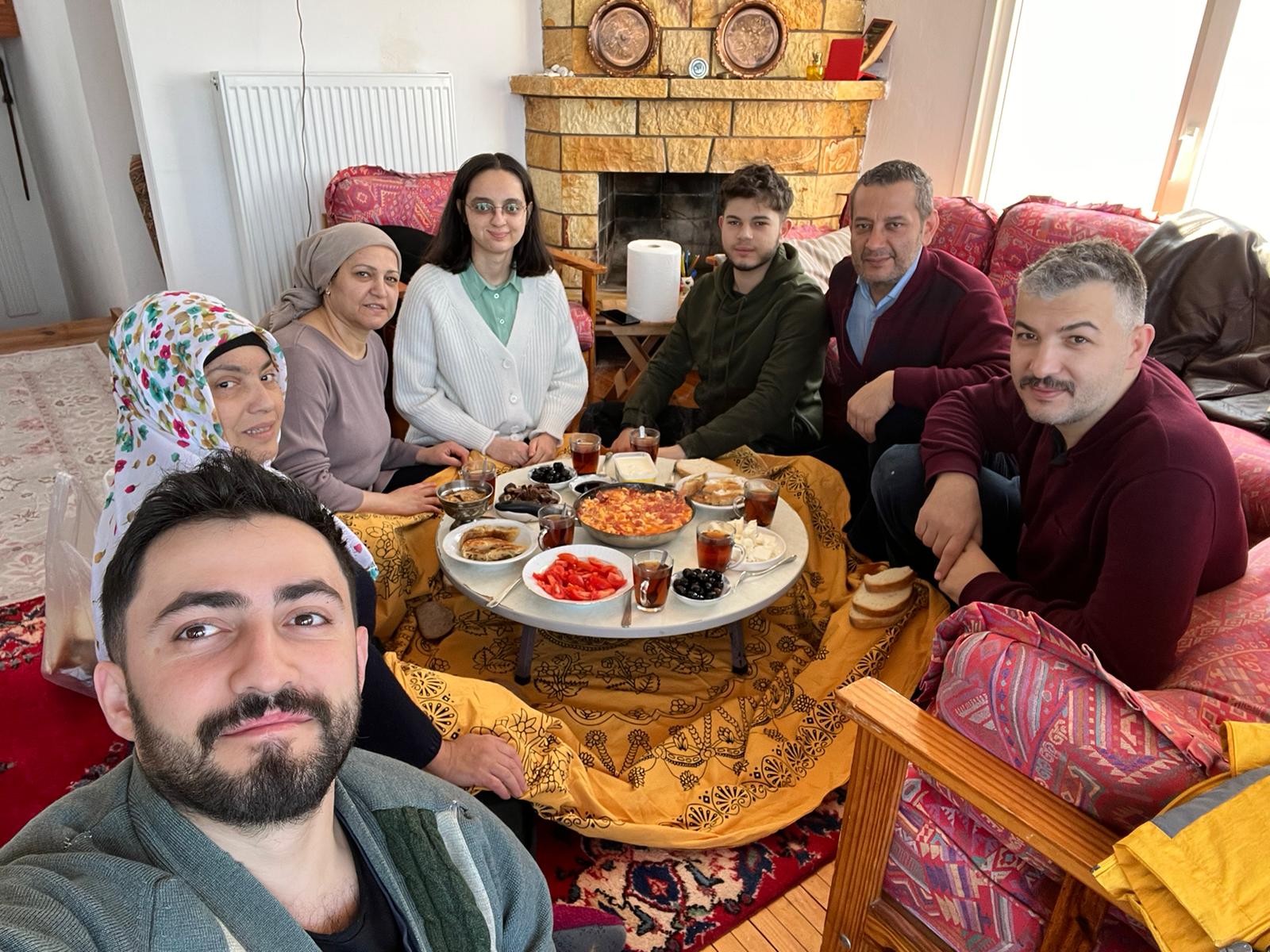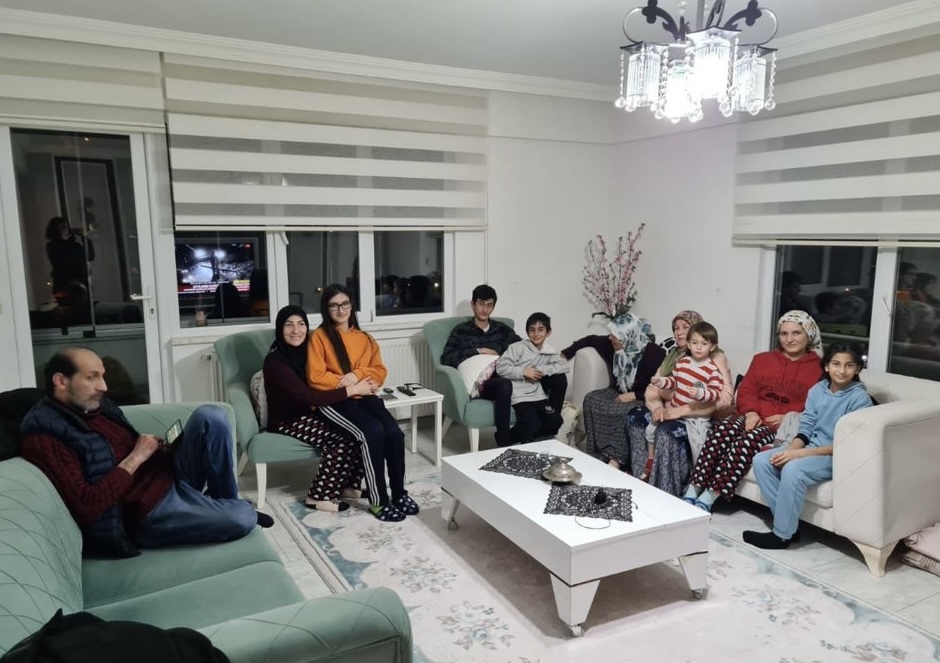
When Melih Telci, a 28-year-old lawyer from Istanbul, heard about a family of four left homeless in the province of Hatay after last week’s devastating earthquakes, he knew what he had to do. He picked up his phone.
“I called them and said; ‘Come, our home is yours,’” he said.
Telci met the family after they travelled to Istanbul, and then drove them to one of his family’s summer homes in Yalova, a northwestern coastal city along the Sea of Marmara. “We set them up with everything – furniture, clothes and food. Now, I’m working on finding the father a job,” Telci told Al Jazeera.
Telci’s family has two more summer homes in Yalova where they hope to welcome more families over the next few days.
They are among Turkish families across the country who are connecting with quake-stricken survivors through word of mouth, social media and the help of local authorities, and then giving shelter to the earthquake victims.

‘I had to help’
Among those who have stepped forward are the people of Armagan village in the Black Sea province of Trabzon.
Located more than 500km (310 miles) north of the site of the deadly quakes that have left more than 41,000 people dead in Turkey and Syria, this small village of only a few hundred people is now hosting several families from Malatya – one of the 10 worst-hit southern Turkish provinces.
“When the earthquake hit, I knew I had to help,” said Ayse Arslan, a 51-year-old housewife from Armagan, currently living in Germany.
Arslan immediately launched a campaign among her family and friends to raise funds for food, clothing and emergency supplies for the survivors.
When she heard about her father’s friends – Nafiye and Mevlut Ozdemir in Malatya, who were stranded in subzero temperatures after their home was destroyed – she knew she had to do more.
“They were in desperate condition. I hadn’t much money, but I had a flat and that’s what I offered,” Arslan told Al Jazeera, explaining that she welcomed them into her empty apartment in Armagan.
“I imagined being in their shoes – losing everything. I’d need shelter to feel safe and dignified,” said Arslan, explaining that she encouraged her siblings and cousins to do the same.
“If we’ve a single loaf of bread, we must share it,” said Arslan, who bought the couple bus tickets to Trabzon.

‘Opened her whole heart’
By the time the couple made it to Arslan’s place, they had experienced all kinds of hell.
“I don’t even want to remember those moments. I screamed till I lost my voice,” said Nafiye Ozdemir as she recounted the horrifying experience of the earthquake.
“Initially, we didn’t want to accept Ayse’s offer, but we really had no other option,” said the 54-year-old housewife. She detailed how she spent the first night sleeping in the snow without shoes or warm clothes.
The next three days, the couple – Mevlut is a cancer patient receiving chemotherapy – spent their nights at a hospital, then a school corridor and finally, holed up in a cave in the mountains.
“I am so grateful. Ayse not only opened her home to us, but her whole heart,” said Ozdemir.
Arslan and her community in Armagan have since taken in 21 survivors from Malatya, including two families with six young children now staying in two of her cousins’ flats.
With the help of family and friends in Germany, Arslan has so far fundraised more than 90,000 Turkish lira ($4,700) to support the families, securing everything from clothing to food and medication.
“I want them to be reassured that what’s ours is theirs for as long as they live,” said Arslan, referring to the Ozdemir couple.

‘Our duty’
Turkish President Recep Tayyip Erdogan has promised a sum of 10,000 lire ($530) for each affected household and promised to rebuild the destroyed homes within a year.
In the meantime, the Turkish government is housing survivors in university dormitories, hotels, and restaurants, as well as setting up tents as temporary accommodation.
But with an overwhelming need for urgent shelter for more than two million displaced people, according to the presidency’s estimates, dozens of volunteer groups have popped up across the country to coordinate efforts to house the survivors.
Like many, Rumeysa Otoman, a 35-year-old Turkish woman living in Bursa, in northwest Turkey, believes the government cannot shoulder the brunt of this disaster alone.
“The state’s doing what it can. It’s our duty to step in and do the same,” Otoman told Al Jazeera.
She is originally from Hatay, one of the worst-hit provinces in southern Turkey, where 17 members of her extended family were killed in the earthquakes. Many more remain unaccounted for as rescue workers continue to dig through the rubble of thousands of destroyed homes.
To do her part, Otoman banded together with her family and friends and booked tickets for as many survivors in Hatay as she could host back in Bursa.
More than a week after the quakes, Otoman’s family is now hosting 60 survivors in Bursa and is working to bring more.
“They’ve lost everything in a blink of an eye,” said Otoman. “We’re one, and we’re here for them.”







